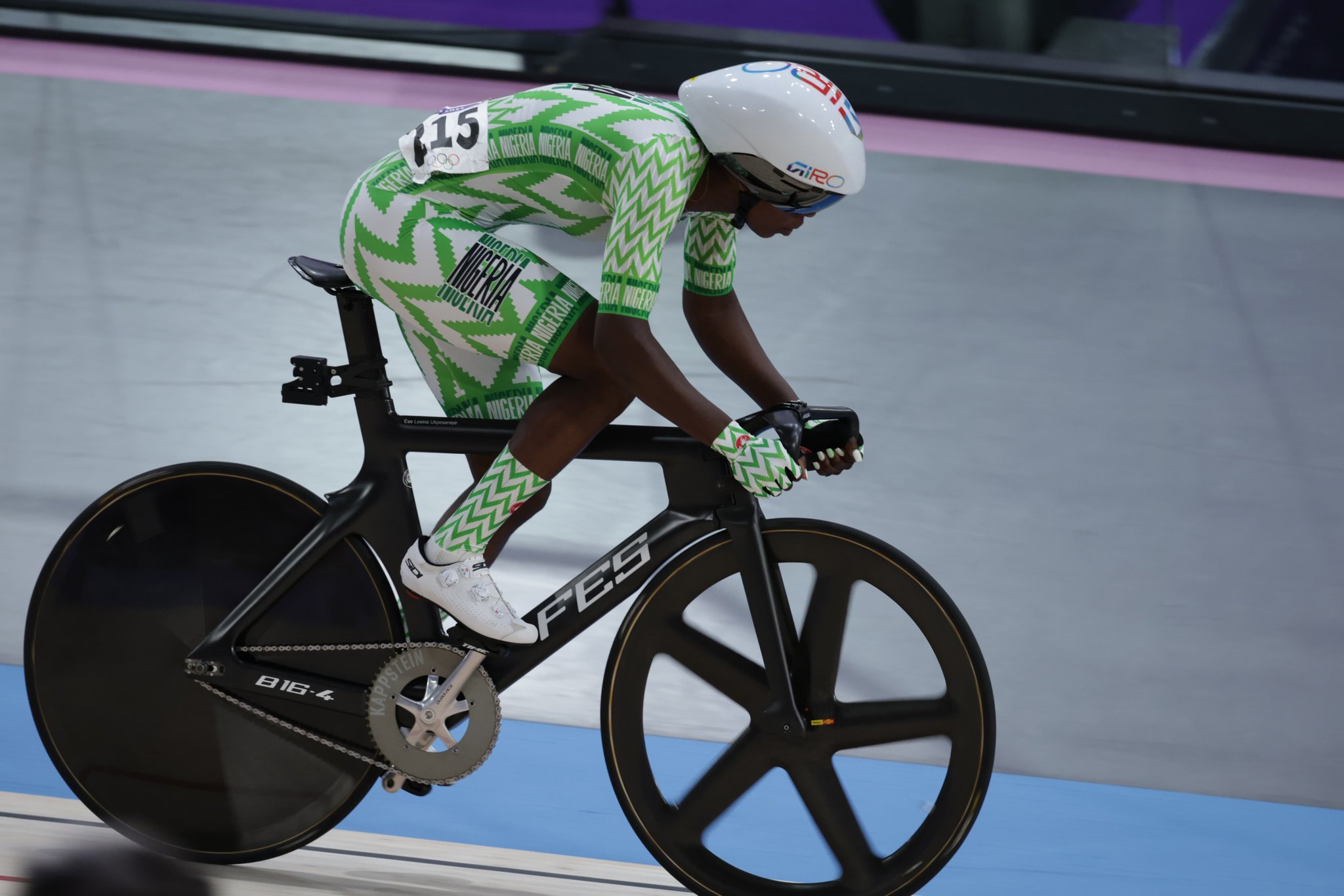Paris 2024: Nigeria’s Ese lovina Ukpeseraye Participates in Olympics With Borrowed Bicycle
In the world of competitive sports, preparation is key. Athletes spend years honing their skills, mastering their equipment, and strategizing for their moment on the global stage. However, for Nigerian cyclist Ese Lovina Ukpeseraye, her path to the Paris 2024 Olympics was anything but conventional. With a borrowed bicycle and a determination forged through adversity, Ukpeseraye’s story is not just a tale of personal triumph but a reflection of the broader challenges faced by Nigerian athletes on the international scene.
The 2024 Paris Olympics saw an unexpected twist for the Nigerian cycling team when Ukpeseraye was called to compete in the keirin and sprint events, both of which are high-speed, high-stakes races where the quality of equipment plays a critical role. Ukpeseraye’s entry was a last-minute decision, triggered by the disqualification of another team, which left Nigeria scrambling to fill the slot. Unfortunately, this sudden opportunity also came with an urgent logistical challenge—Nigeria had no suitable track bicycle available for the competition.
In a remarkable display of sportsmanship, the German cycling team lent Ukpeseraye a bicycle, enabling her to compete. This act underscores the collaborative spirit that sometimes emerges in the highly competitive environment of the Olympics. Ukpeseraye expressed her gratitude publicly, acknowledging the German team’s crucial support, which allowed her to participate under such challenging circumstances.
Ukpeseraye’s situation is symptomatic of a broader issue within Nigerian sports administration. The last-minute nature of her participation and the subsequent need to borrow equipment highlight significant gaps in planning and resource allocation. Nigeria’s sports organizations, including the Athletics Federation of Nigeria (AFN) and the Nigeria Olympic Committee (NOC), have been criticized for their lack of foresight and inadequate support for athletes.
Impact on Athlete Performance
Competing with unfamiliar equipment is a significant disadvantage in any sport, but in cycling, where precision and customization of the bicycle are critical, the impact is even more pronounced. Ukpeseraye’s performance was inevitably affected by the lack of a properly fitted, personalized bike, which raises concerns about the level of support provided to Nigerian athletes, even at the highest levels of competition.
Ukpeseraye’s experience is not an isolated case. The ongoing Olympics have seen other Nigerian athletes facing similar last-minute hurdles. Favour Ofili, for instance, was initially omitted from the 100 meters races despite being qualified, highlighting a recurring pattern of administrative oversights and inadequate preparations that have plagued Nigerian sports for years.
Also Read: Olympics: Team Nigeria impresses at Paris 2024 opening ceremony
The Need for Structural Reform
These repeated issues point to a critical need for structural reform within Nigeria’s sports administration. Ensuring that athletes receive timely and adequate support is essential for their success on the global stage. The government’s role, along with sports federations, must evolve from reactive to proactive, with a focus on long-term planning and investment in infrastructure, equipment, and athlete development.













